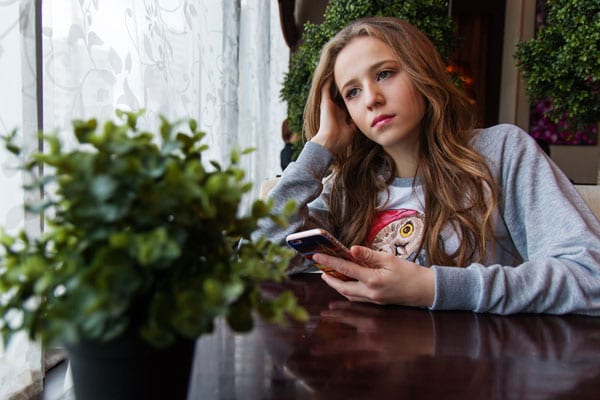
I’m on my phone too much.
You’re probably on your phone too much.
Most people are on their phone so much that we’ve been lulled in complacency about what “too much” actually is. This is despite the research about how smartphones are ruining our eyesight, disrupting our sleep and affecting our relationships with the living, breathing human beings around us.
One day, we’re going to look back at this period of time in horror, said Digital Minimalism author Cal Newport. “You’re gonna look at allowing a 13-year-old to have a smartphone the same way that you would look at allowing your 13-year-old to smoke a cigarette,” he said to GQ.
From the physical (there’s a 15 percent chance that your iPhone carries the bacteria E. Coli—and if it doesn’t, it has a whole host of other germs on it) to the emotional (smartphone usage is linked to increased rates of depression, anxiety and self-harm), the way we interact with our phones is having a huge impact on who we are.
Science journalist and self-identified tech addict Catherine Price decided to research the subject based on her own phone addiction and wrote How To Break Up With Your Phone. Here are her most practical tips on fighting our most-modern affliction yet.
Ride it out
Borrow a trick from smokers who are trying to quit when you’re working on quitting yourself and ride out the cravings. If we acknowledge our discomfort and ride out the wave, Price said, the craving will fade on its own. Instead of fighting the urge or berating yourself for wanting to check a notification, pause, take a breath and notice your want. Don’t surrender to it or try to distract yourself, simply recognize it and “see what happens,” writes Price.
Accountability
All goals benefit from some accountability, and the chances are that most of your friends and family want to start being a bit more conscious about their tech time too. When you mention that you want to look at your phone less, invite them to join you when they respond, “me too!” It will make the process more fun and less isolating.
Face your reality
The first step to recovery is acknowledging you have a problem. Coming to terms with how much you actually use your phone and for what will help you focus on how to use it less. Price recommends downloading an app to help you measure your usage like Moment or OFFTIME. This will help you collect hard data on your own habits.
Once you know how much time you’re spending on your phone, the apps that suck away your time and how often you pick your phone up, you can make specific goals to cut back on these things. It’s hard to make progress when your goal is vague, Price says. Ask yourself questions like: Do I want to use my phone only when working? Only when I absolutely need to? Does zoning out and mindlessly scrolling relax you? But do you want to limit that time? Consider these things, otherwise you’re diving in with no direction, which usually leads to failure.
Boundaries
Price recommends turning off all notifications, including email and text notifications. If you are worried about missing a call from someone, put them on a special VIP list so they will be able to reach your immediately.
She also recommends creating no phone zones like the dinner table and the bedroom, and imposing time limits like no phones after 6 p.m. She encourages deleting social media apps from your phone and only checking them from a desktop. And if you can’t delete social media from your phone for work? Download an app blocker.
Phubbing
We’re all guilty of phubbing, the act of checking your phone when in the middle of a conversation, meal or otherwise with other people. It’s become so common that it’s almost not rude anymore. However, it doesn’t change the fact that checking our phone when we’re with others disengages us from our surroundings and removes us from being fully present. Price recommends putting your phone away entirely when you’re in social situations.
Just a break, not a breakup
After following Price’s guidelines for three weeks, she recommends tackling a full 24-hour period without your phone. This trial separation is meant to test your discipline that you’ve developed up until this point, but it also meant to “allow serendipity to reenter your life,” Price writes. The 24-hour period will hopefully reinforce the fact that there are so many other interesting things to do that are far better for you than looking at your phone.
Phone enlightenment
As you slowly shift your habits away from the endless feed that is modern life, Price writes that you can now use that time to trying something new. Go for a hike, visit a museum, learn a new recipe, take a class or read a book that you haven’t had time to get to. All of these activities are healthy, substantive and productive uses of time that will ultimately make you a happier, healthier person.
See also: Five Books About Climate Change You Need to Read Now














